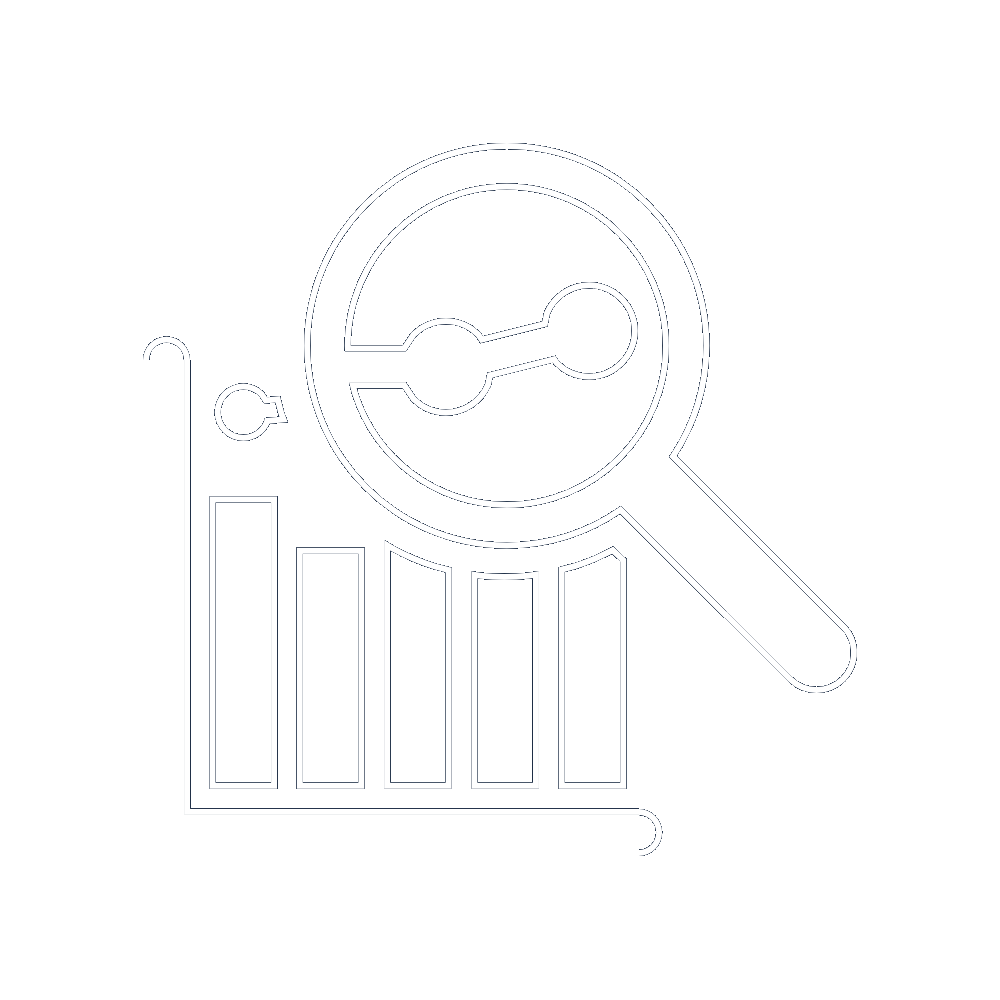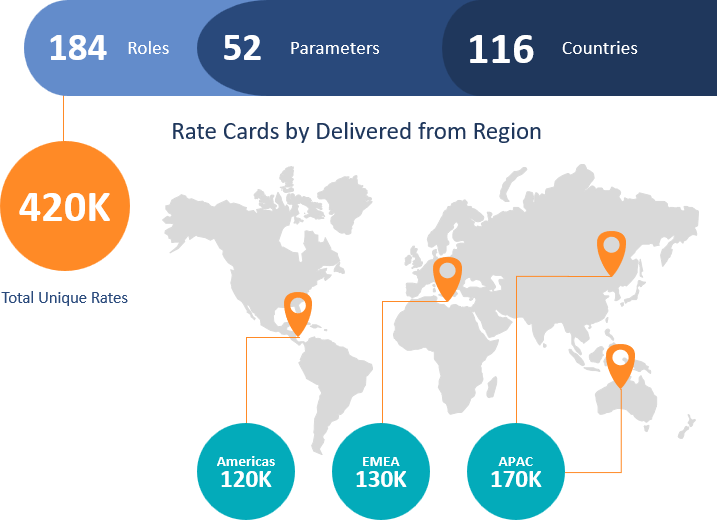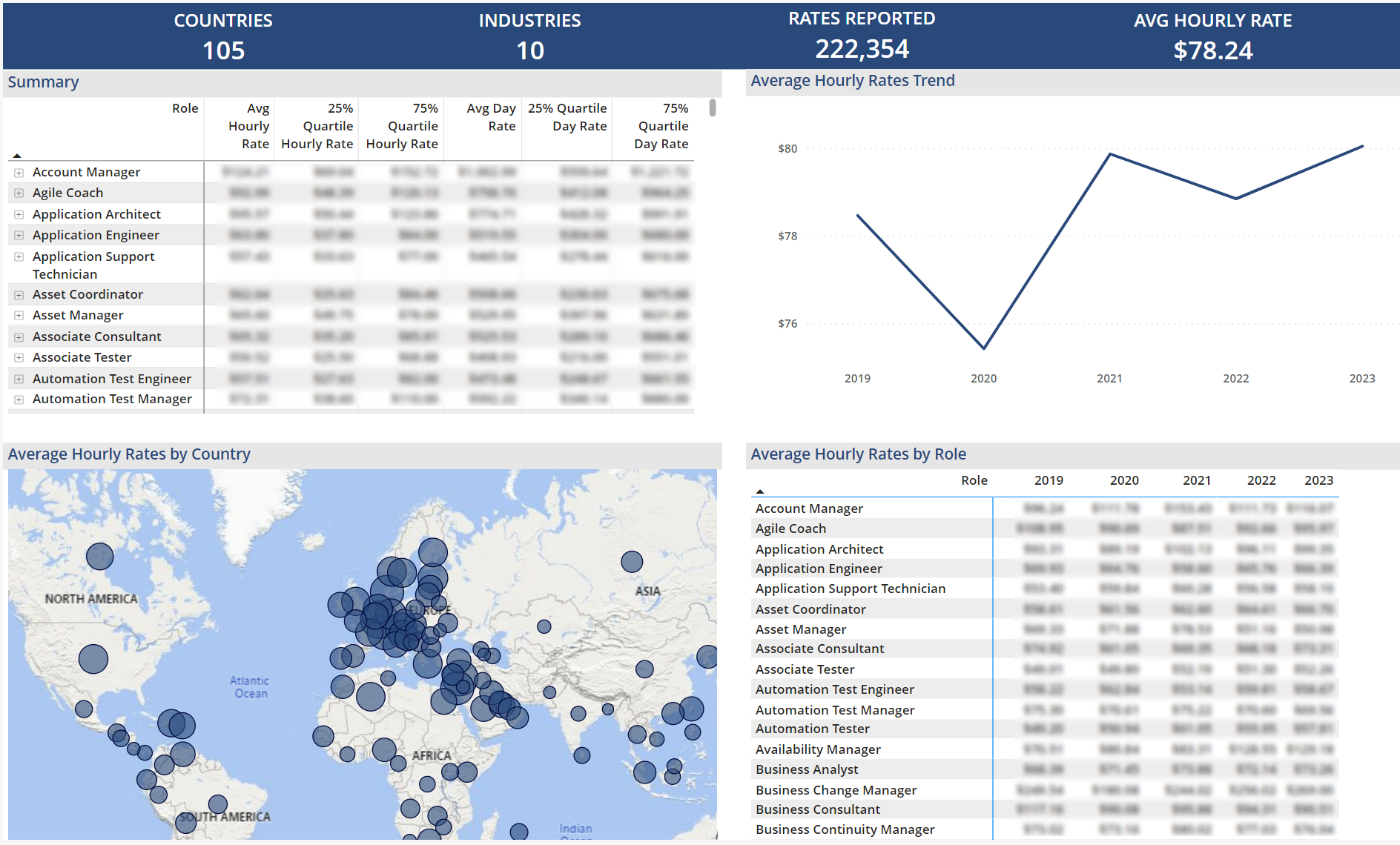5 Ways to Optimize Application Sourcing Costs in an AI-Enabled Market
Application sourcing —software, support, labor and managed services — presents a prime opportunity to reduce spend and improve value realization.




ISG's Rate Card Database sets the industry standard for accuracy and reliability. Our proven methodology, honed over decades of benchmarking experience, allows us to establish baseline profiles and compare your organization's performance with current market data.

Service Areas
Key Parameters
Service Areas
Key Parameters
Industry Groups

ISG is a leader in proprietary research, advisory consulting and executive event services focused on market trends and disruptive technologies.
Get the insight and guidance you need to accelerate growth and create more value.
Learn MoreLet's be blunt: The pressure to adopt AI in HR is a panic button being hit by the C-suite. The mandate from the boardroom is clear, and the pressure is intensifying: HR must adopt AI to remain competitive. This directive often lands on the desks of HR leaders who are already managing complex environments, creating a dangerous disconnect between executive ambition and operational reality.
Revenue organizations are running out of room to hide. With increasingly complex buyer journeys, longer sales cycles and rising expectations for personalized outreach, today’s CROs face a mounting challenge: deliver predictable growth in a market that’s anything but predictable while simultaneously building a team that doesn’t burn out.
Requirements for sustainability reporting have been undergoing a political shift over the past year, including modifications to the EU’s reporting requirements. The difference between European and North American attitudes to sustainability as a priority, which were significant 15 years ago, began to converge toward the end of the ‘teens but now appear to be diverging. In the U.S. in particular, there have been legal challenges to state laws and a deregulatory emphasis at the Federal level. The scaling back of the scope and granularity of sustainability reporting is having its biggest impact on small and midsize establishments in the EU. Nonetheless, mandated reporting remains in place for larger enterprisers around the world, albeit to varying degrees. Moreover, there is still demand for enterprises to set and meet sustainability objectives to achieve increased operating efficiency and to associate their brand with responsible stewardship of the environment. For these enterprises, there remains the need to achieve efficient compliance with reporting mandates as well as to have processes and systems in place to set overall objectives and mechanisms to assign responsibility for meeting them across the enterprise.
ISG recently published the 2025 ISG Buyers Guides for DataOps, providing an assessment of 51 software providers offering products used by data engineers, data scientists, and data and AI professionals to facilitate the use of data for analytics and AI needs. The DataOps Buyers Guide research generated three reports and five quadrants assessing providers in relation to overall DataOps, Data Observability, Data Orchestration, Data Pipelines and Data Products. By providing an assessment of all software providers with tools in the portfolio of DataOps, the research offers a unique perspective on the extent to which emerging capabilities are being adopted by software providers. Given the amount of noise being made by providers about AI, it’s easy to assume that all providers have already delivered AI-driven capabilities that automate and accelerate DataOps use-cases. However, the DataOps Buyers Guide research illustrates that, for many providers, support for AI functionality remains a work in progress.
Agentic AI is moving from pilots to production systems that execute work across enterprise applications, data platforms and business processes. As I’ve argued before, the value of AI is realized in action, not just answers, and enterprises are investing accordingly. One of the key questions now is how to coordinate the actions among different agents. My colleague Matt Aslett’s perspective on Model Context Protocol (MCP) explains that software providers are quickly embracing MCP as a standardized way for models and agents to find and use trusted data. But context alone doesn’t orchestrate multi-agent workflows. That’s where Agent-to-Agent Protocol (A2A) comes in, enabling agents to discover each other, exchange capabilities and hand off work reliably. Together, MCP and A2A form complementary lanes for agentic systems to share information and coordinate actions.

